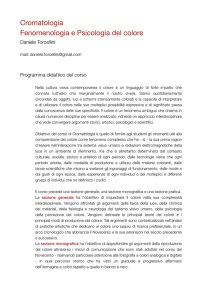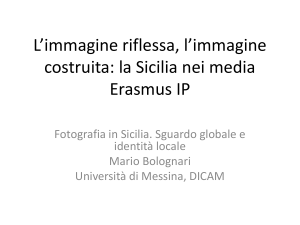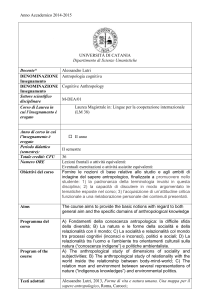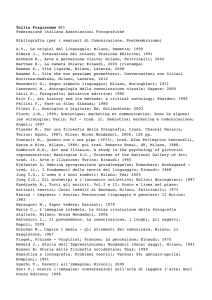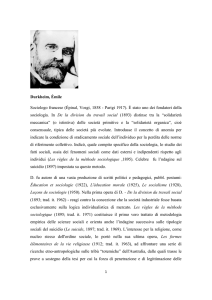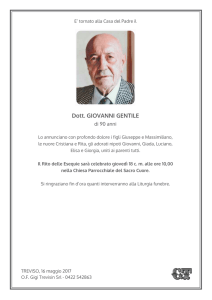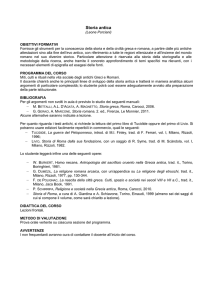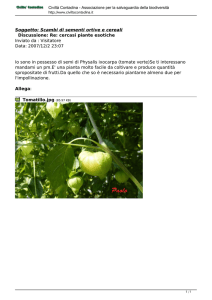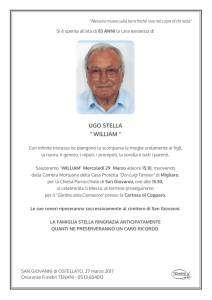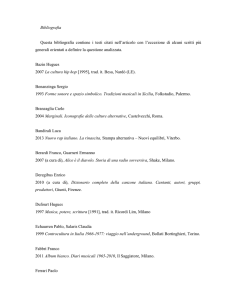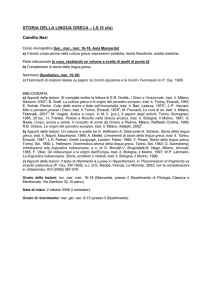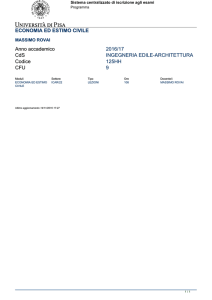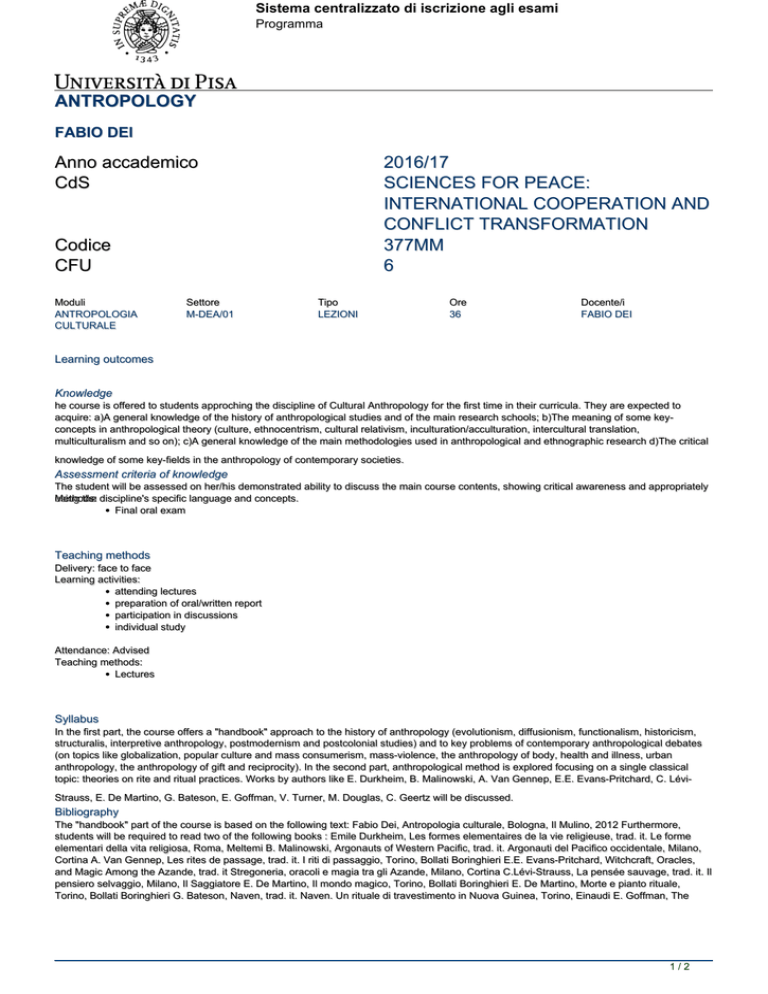
Sistema centralizzato di iscrizione agli esami
Programma
ANTROPOLOGY
FABIO DEI
Anno accademico
CdS
2016/17
SCIENCES FOR PEACE:
INTERNATIONAL COOPERATION AND
CONFLICT TRANSFORMATION
377MM
6
Codice
CFU
Moduli
ANTROPOLOGIA
CULTURALE
Settore
M-DEA/01
Tipo
LEZIONI
Ore
36
Docente/i
FABIO DEI
Learning outcomes
Knowledge
he course is offered to students approching the discipline of Cultural Anthropology for the first time in their curricula. They are expected to
acquire: a)A general knowledge of the history of anthropological studies and of the main research schools; b)The meaning of some keyconcepts in anthropological theory (culture, ethnocentrism, cultural relativism, inculturation/acculturation, intercultural translation,
multiculturalism and so on); c)A general knowledge of the main methodologies used in anthropological and ethnographic research d)The critical
knowledge of some key-fields in the anthropology of contemporary societies.
Assessment criteria of knowledge
The student will be assessed on her/his demonstrated ability to discuss the main course contents, showing critical awareness and appropriately
using the discipline's specific language and concepts.
Methods:
Final oral exam
Teaching methods
Delivery: face to face
Learning activities:
attending lectures
preparation of oral/written report
participation in discussions
individual study
Attendance: Advised
Teaching methods:
Lectures
Syllabus
In the first part, the course offers a "handbook" approach to the history of anthropology (evolutionism, diffusionism, functionalism, historicism,
structuralis, interpretive anthropology, postmodernism and postcolonial studies) and to key problems of contemporary anthropological debates
(on topics like globalization, popular culture and mass consumerism, mass-violence, the anthropology of body, health and illness, urban
anthropology, the anthropology of gift and reciprocity). In the second part, anthropological method is explored focusing on a single classical
topic: theories on rite and ritual practices. Works by authors like E. Durkheim, B. Malinowski, A. Van Gennep, E.E. Evans-Pritchard, C. LéviStrauss, E. De Martino, G. Bateson, E. Goffman, V. Turner, M. Douglas, C. Geertz will be discussed.
Bibliography
The "handbook" part of the course is based on the following text: Fabio Dei, Antropologia culturale, Bologna, Il Mulino, 2012 Furthermore,
students will be required to read two of the following books : Emile Durkheim, Les formes elementaires de la vie religieuse, trad. it. Le forme
elementari della vita religiosa, Roma, Meltemi B. Malinowski, Argonauts of Western Pacific, trad. it. Argonauti del Pacifico occidentale, Milano,
Cortina A. Van Gennep, Les rites de passage, trad. it. I riti di passaggio, Torino, Bollati Boringhieri E.E. Evans-Pritchard, Witchcraft, Oracles,
and Magic Among the Azande, trad. it Stregoneria, oracoli e magia tra gli Azande, Milano, Cortina C.Lévi-Strauss, La pensée sauvage, trad. it. Il
pensiero selvaggio, Milano, Il Saggiatore E. De Martino, Il mondo magico, Torino, Bollati Boringhieri E. De Martino, Morte e pianto rituale,
Torino, Bollati Boringhieri G. Bateson, Naven, trad. it. Naven. Un rituale di travestimento in Nuova Guinea, Torino, Einaudi E. Goffman, The
1/2
Powered by TCPDF (www.tcpdf.org)
Powered by TCPDF (www.tcpdf.org)
Sistema centralizzato di iscrizione agli esami
Programma
Presentation of Self in Everyday Life, trad. it. La vita quotidiana come rappresentazione, Bologna, Il Mulino V. Turner, From Ritual to Theatre,
trad. it. Dal rito al teatro, Bologna, Il Mulino M. Douglas, Natural Symbols, trad. it. I simboli naturali, Torino, Einaudi C. Geertz, The Interpretation
of Cultures, trad. it. Interpretazione di culture, Bologna, Il Mulino
Updated: 14/11/2016 17:27
2/2

